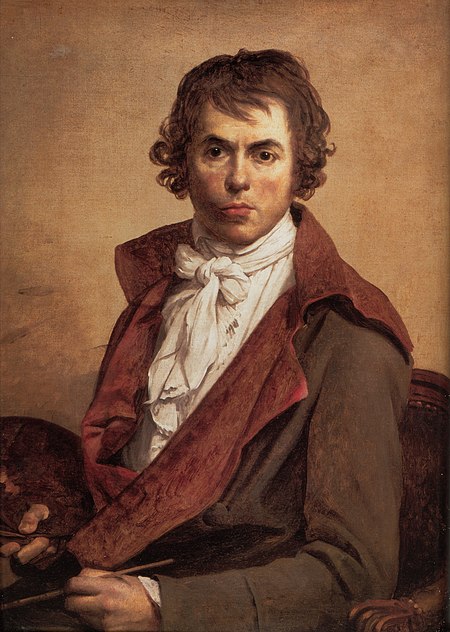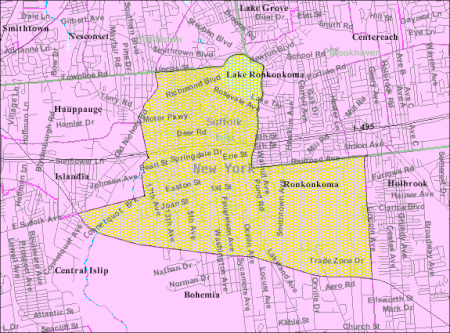Battle of Changping
| |||||||||||||||||||||||||||||||||
Read other articles:

Ivan Petrovich KorchaginKorchagin antara 1943 dan 1944Lahir24 Agustus [K.J.: 12 Agustus] 1898Desa Byltsino, volost Kozhanskoy, uyezd Gorokhovetsky, kegubernuran Vladimir, Kekaisaran RusiaMeninggal24 Juli 1951(1951-07-24) (umur 52)Moskwa, Uni SovietPengabdian Kekaisaran Rusia SFSR Rusia Uni Soviet Dinas/cabang Angkatan Darat Kekaisaran Rusia Tentara Merah (kemudian Angkatan Darat Uni Soviet) Lama dinas 1914–1918 1919–1937 1940–1951 PangkatLetnan jenderalPerang/pertempuran Perang D…

Bagian dari seri mengenai Sejarah Indonesia Prasejarah Manusia Jawa 1.000.000 BP Manusia Flores 94.000–12.000 BP Bencana alam Toba 75.000 BP Kebudayaan Buni 400 SM Kerajaan Hindu-Buddha Kerajaan Kutai 400–1635 Kerajaan Tarumanagara 450–900 Kerajaan Kalingga 594–782 Kerajaan Melayu 671–1347 Kerajaan Sriwijaya 671–1028 Kerajaan Sunda 662–1579 Kerajaan Galuh 669–1482 Kerajaan Mataram 716–1016 Kerajaan Bali 914–1908 Kerajaan Kahuripan 1019̵…

Karikatur di Prancis pada tahun 1898, menggambarkan Britania, Jerman, Rusia, Prancis dan Jepang membagi-bagi kue dengan tulisan Chine (Tiongkok). Seseorang dengan pakaian Tionghoa tampak marah di belakang mereka. Imperialisme Baru (atau Neo-imperialisme) adalah gelombang imperialisme dan penjajahan yang terjadi pada akhir abad ke-19 dan awal abad ke-20. Bangsa-bangsa yang terlibat dalam perluasan wilayah pada masa ini adalah bangsa-bangsa Eropa (seperti Britania, Prancis, Spanyol, Portugis, Bela…

بيزيتا إسبانيةمعلومات عامةالبلد القائمة ... إسبانيا 1868 - 1 يناير 2002أندورا 1868 - 1 يناير 2002Captaincy General of Cuba (en) 1868 - 1898Captaincy General of the Philippines (en) 1868 - 1898Captaincy General of Puerto Rico (en) 1868 - 1898إفني 1884 - 1969الصحراء الغربية 1958 - 1976الحماية الإسبانية على المغرب 1913 - 1956غينيا الاستوائية 1926 - 1968 المنطقة إسبا�…

خراسان الكبرىمعلومات عامةالمنطقة الدولة العباسية وصفها المصدر الموسوعة البريطانية نسخة سنة 1911 التأثيراتفرع من بارس تعديل - تعديل مصدري - تعديل ويكي بيانات خريطة لِبلاد ما وراء النهر وأبرز مُدُنها وقصباتها خِلال القرن الثامن الميلادي طاحونة هوائية فارسية في نشتيفان خراسان…

Unincorporated community in Florida, United StatesMelroseUnincorporated communityA former gas station now serving as commercial building on Florida SR 26 and Grove Street.MelroseLocation within the state of FloridaCoordinates: 29°43′N 82°3′W / 29.717°N 82.050°W / 29.717; -82.050CountryUnited StatesStateFloridaCountyAlachua, Bradford, Clay, and PutnamTime zoneUTC-5 (Eastern (EST)) • Summer (DST)UTC-4 (EDT)ZIP code32666[1] Melrose is an unincorpo…

Jacques-Louis DavidLukisan sendiri Jacques-Louis David, 1794, Musée du LouvreLahirJacques-Louis David(1748-08-30)30 Agustus 1748Paris, Kerajaan PrancisMeninggal29 Desember 1825(1825-12-29) (umur 77)Brussels, United NetherlandsKebangsaanPrancisDikenal atasLukisan, MenggambarKarya terkenalOath of the Horatii (1784), The Death of Marat (1793)Gerakan politikNeoklasikPenghargaanPrix de RomeCommander of the Legion of Honour Jacques-Louis David (/ʒɑːkˈlwi ˈdɑːviːd/; bahasa Prancis: […

Capital of the Emirate of Ajman, United Arab Emirates This article is about the city. For the eponymous Emirate, see Emirate of Ajman. For other uses, see Ajman (disambiguation). City in Emirate of Ajman, United Arab EmiratesAjman عجمانCityClockwise from top: Aerial view of Ajman, Corniche Mosque, Ajman beach, Street in Ajman, Ajman Fort Museum FlagCoat of armsWordmarkAjmanLocation of Ajman in the UAEShow map of United Arab EmiratesAjmanLocation within the Persian GulfShow map of Persian Gu…

Creation of separate accessible storage areas on a secondary computer storage device GParted is a popular utility used for disk partitioning Disk partitioning or disk slicing[1] is the creation of one or more regions on secondary storage, so that each region can be managed separately.[2] These regions are called partitions. It is typically the first step of preparing a newly installed disk, before any file system is created. The disk stores the information about the partitions' l…

رونكونكوما الإحداثيات 40°48′50″N 73°07′42″W / 40.8139°N 73.1283°W / 40.8139; -73.1283 [1] تقسيم إداري البلد الولايات المتحدة[2][3] التقسيم الأعلى آيسلب خصائص جغرافية المساحة 21.10399 كيلومتر مربع21.147016 كيلومتر مربع (1 أبريل 2010)[4] ارتفاع 34 متر ع�…

BudweiserJenisbeer brand (en) dan Lager AsalRepublik Ceko Diperkenalkan1876 ProdusenAnheuser-Busch InBev Situs webhttps://www.budweiser.com/, http://www.budweiser.com/ dan http://www.budweiser.ca/ [sunting di Wikidata]lbs Budweiser, kadang-kadang disebut Bud saja, adalah sebuah merek bir putih (pale lager) terkenal di dunia yang dimiliki oleh perusahaan Anheuser-Busch yang berpusat di kota St. Louis, Amerika Serikat. Budweiser dibuat dengan sebuah proporsi campuran beras ke dalam fermen…

Skonto FCNama lengkapSkonto Football ClubBerdiri15 Desember 1991; 32 tahun lalu (1991-12-15)sebagai Forums-SkontoStadionStadion Skonto, Riga(Kapasitas: 9,500[1])KetuaVladimirs KoļesņičenkoManajerTamaz PertiaLigaVirsliga20122ndSitus webSitus web resmi klub Kostum kandang Kostum tandang Musim ini Skonto FC adalah tim sepak bola Latvia yang bermain di Divisi Utama Virsliga. Didirikan pada tahun 1991 dengan nama Forums-Skonto. Klub ini memainkan pertandingan kandangnya di Skonto…

Adhésion de la Grèce à la CEE. Chronologie de la Grèce ◄◄ 1975 1976 1977 1978 1979 1980 1981 1982 1983 ►► Chronologies Données clés 1976 1977 1978 1979 1980 1981 1982Décennies :1940 1950 1960 1970 1980 1990 2000Siècles :XVIIIe XIXe XXe XXIe XXIIeMillénaires :-Ier Ier IIe IIIe Chronologies géographiques Afrique Afrique du Sud, Algérie, Angola, Bénin, Botswana, Burkina Faso, Burundi, Cameroun, Cap-Vert, République …

Jasmine Jessica AnthonyPekerjaanAktrisTahun aktif2002—sekarang Jasmine Jessica Anthony (lahir 28 Oktober 1996) adalah aktris asal Amerika Serikat. Filmografi Film Catch Me If You Can (2002) ... Little Girl Stop Thief! (2004) ... Young Sophie Checking Out (2005) ... Young Flo Applebaum Little Athens (2005) ... Katie Kinney Rodeo Girl (2006) ... Heather 1408 (2007) ... Katie Enslin Penampilan Televisi Star Trek: Enterprise (2005) ... Tallah Monk (2005) ... Witch Girl Commander in Chief (200…

City in Kentucky, United StatesFlorence, KentuckyCityFlorence Hotel FlagLogoLocation of Florence in Boone County, Kentucky.Coordinates: 38°59′29″N 84°38′46″W / 38.99139°N 84.64611°W / 38.99139; -84.64611CountryUnited StatesStateKentuckyCountyBooneEstablished1830IncorporatedFebruary 17, 1860Government • TypeMayor–council[1] • MayorJulie Metzger Aubuchon[2]Area[3] • Total10.73 sq mi (27.78&#…

American politician (born 1941) Don SherwoodMember of the U.S. House of Representativesfrom Pennsylvania's 10th districtIn officeJanuary 3, 1999 – January 3, 2007Preceded byJoe McDadeSucceeded byChris Carney Personal detailsBorn (1941-03-05) March 5, 1941 (age 83)Nicholson, Pennsylvania, U.S.Political partyRepublicanSpouseCarol EvansResidence(s)Tunkhannock, Pennsylvania, U.S.Alma materDartmouth CollegeOccupationAutomobile dealer Donald Lewis Sherwood[1] (born …

Football match1968 Football League Cup FinalEvent1967–68 Football League Cup Leeds United Arsenal 1 0 Date2 March 1968VenueWembley Stadium, LondonRefereeLes Hamer (Horwich)Attendance97,887← 1967 1969 → The 1968 Football League Cup Final took place on 2 March 1968 at Wembley Stadium. It was the eighth final and the second to be played at Wembley. It was contested between Arsenal and Leeds United. Terry Cooper scored the only goal of the game, hammering home a long-range goal after 2…

Mir Hazar Khan Khosoمیر ہزار خان کھوسوMir Hazar Khan Khoso Perdana Menteri PakistanPelaksana jabatanMasa jabatan25 Maret 2013 – 5 Juni 2013PresidenAsif Ali ZardariPendahuluRaja Pervaiz AshrafPenggantiNawaz SharifMenteri Urusan Luar NegeriPelaksana jabatanMasa jabatan4 April 2013 – 4 Juni 2013PendahuluHina Rabbani KharPenggantiNawaz SharifMenteri KeuanganPelaksana jabatanMasa jabatan4 April 2013 – 4 Juni 2013PendahuluSaleem MandviwallaPenggantiIshaq…

1970 Italian filmLe coppieDirected byMario MonicelliAlberto Sordi Vittorio De SicaCinematographyCarlo Di PalmaEnnio GuarnieriSante AchilliEdited byRuggero MastroianniFranco FraticelliMusic byManuel De SicaEnzo JannacciPiero PiccioniRelease date 1970 (1970) CountryItalyLanguageItalian Le coppie (internationally released as Man and Wife and The Couples) is a 1970 Italian comedy film directed by Mario Monicelli, Alberto Sordi and Vittorio De Sica. It consists of three segments.[1][…

يفتقر محتوى هذه المقالة إلى الاستشهاد بمصادر. فضلاً، ساهم في تطوير هذه المقالة من خلال إضافة مصادر موثوق بها. أي معلومات غير موثقة يمكن التشكيك بها وإزالتها. (يونيو 2020) سباق باريس روبيه 1929 التاريخ 31 مارس عدد المراحل 1 عدد الرياضيين 86 (نقطة البداية)، و25 (نقطة النهاية) المس�…
